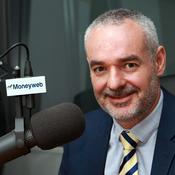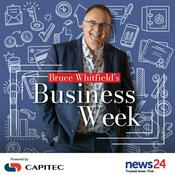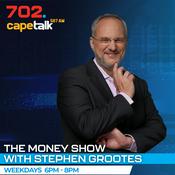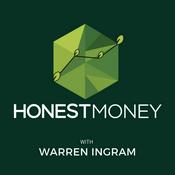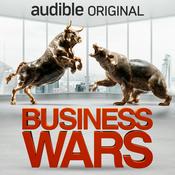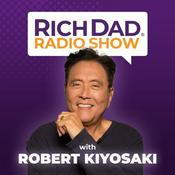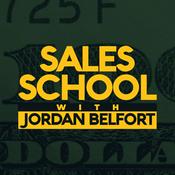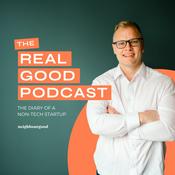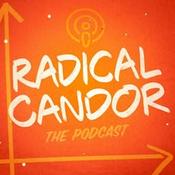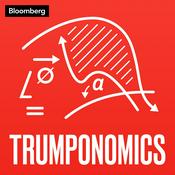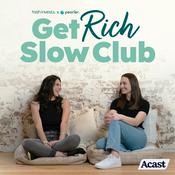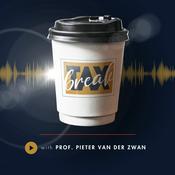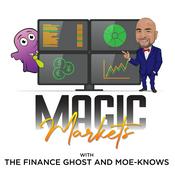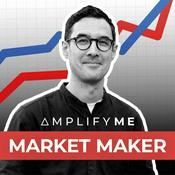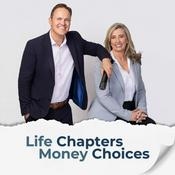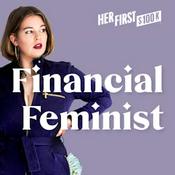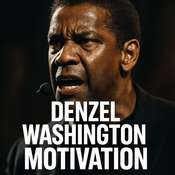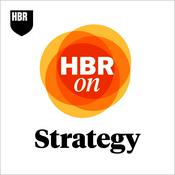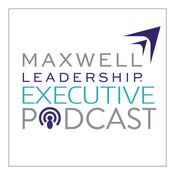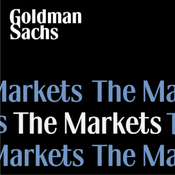109 episodes
- As a special addition to this week's episode, you can see Katy's full sit-down interview with Angela Duckworth, where they also explore the relationship between self-control and grit.
Watch or listen to their conversation on YouTube or Spotify.
When your emotions flare or temptation calls, what does it take to hold back? Whether it’s resisting the urge to lash out or the pull of short-term pleasure in favor of long-term goals, self-control can be one of the hardest—and most important—skills we ever learn.
In this episode of Choiceology with Katy Milkman, we explore the power and limits of self-control. You'll hear how legendary baseball player Jackie Robinson changed the course of history not just with his athletic talent, but through extraordinary composure in the face of hatred. Dr. Yohuru Williams is a professor of history and the founding director of the Racial Justice Initiative at the University of St. Thomas. He is also the co-author of Call Him Jack: The Story of Jackie Robinson, Black Freedom Fighter. He explains how Jackie Robinson's restraint and strategic discipline helped dismantle racial barriers in Major League Baseball—and why his quiet strength was anything but passive.
Then, Katy sits down with psychologist and Grit author Dr. Angela Duckworth, a leading expert on self-control. She breaks down what science tells us about managing impulses, why willpower by itself falls short, and how simple environmental tweaks and practical strategies can help anyone delay gratification and make smarter choices.
Choiceology is an original podcast from Charles Schwab. For more on the show, visit schwab.com/Choiceology.
If you enjoy the show, please leave a rating or review on Apple Podcasts.
Important Disclosures
The comments, views, and opinions expressed in the presentation are those of the speakers and do not necessarily represent the views of Charles Schwab.
This material is intended for general, informational and educational purposes only.
Data contained herein from third party providers is obtained from what are considered reliable sources. However, its accuracy, completeness or reliability cannot be guaranteed.
All corporate names and market data shown above are for illustrative purposes only and are not a recommendation, offer to sell, or a solicitation of an offer to buy any security.
Investing involves risk including loss of principal.
This material contains links to content that is available on third-party websites. Schwab is not responsible for the content and does not provide, edit, or endorse any of the content.
The books How to Change: The Science of Getting from Where You Are to Where You Want to Be, Call Him Jack: The Story of Jackie Robinson, Black Freedom Fighter, and Grit are not affiliated with, sponsored by, or endorsed by Charles Schwab & Co., Inc. (CS&Co.). Charles Schwab & Co., Inc. (CS&Co.) has not reviewed the books and makes no representations about its content.
© 2025 Charles Schwab & Co., Inc. All rights reserved. Member SIPC
1025-XWCS
Hosted by Simplecast, an AdsWizz company. See pcm.adswizz.com for information about our collection and use of personal data for advertising. - In this bonus addition of Choiceology, Katy Milkman sits down with psychologist and Grit author Dr. Angela Duckworth, a leading expert on self-control. She breaks down what science tells us about managing impulses, why willpower by itself falls short, and how simple environmental tweaks and practical strategies can help anyone delay gratification and make smarter choices.
Katy and Angela's conversation is featured in the Choiceology episode "Playing the Long Game: The Power of Self-Control," now available in your favorite podcast app.
Choiceology is an original podcast from Charles Schwab. For more on the show, visit schwab.com/Choiceology.
If you enjoy the show, please leave a rating or review on Apple Podcasts.
Important Disclosures
The comments, views, and opinions expressed in the presentation are those of the speakers and do not necessarily represent the views of Charles Schwab.
This material is intended for general, informational and educational purposes only.
Data contained herein from third party providers is obtained from what are considered reliable sources. However, its accuracy, completeness or reliability cannot be guaranteed.
All corporate names and market data shown above are for illustrative purposes only and are not a recommendation, offer to sell, or a solicitation of an offer to buy any security.
Investing involves risk including loss of principal.
This material contains links to content that is available on third-party websites. Schwab is not responsible for the content and does not provide, edit, or endorse any of the content.
The book Grit is not affiliated with, sponsored by, or endorsed by Charles Schwab & Co., Inc. (CS&Co.). Charles Schwab & Co., Inc. (CS&Co.) has not reviewed the books and makes no representations about its content.
1025-XWCS
Hosted by Simplecast, an AdsWizz company. See pcm.adswizz.com for information about our collection and use of personal data for advertising. - Most of us label ourselves early on as academic (or not), athletic (or not), or talented (or not). But even if you feel like you're lacking in natural talent or ability in certain areas, approaching new skills or challenges with openness, effort, and curiosity can take you farther than you might expect.
In this episode of Choiceology with Katy Milkman, we look at the stories we tell ourselves about our abilities—and how to create conditions that can shape our trajectories for growth and achievement.
You'll hear from Donna Ferguson, a freelance journalist with The Guardian and The Observer, along with a couple of adults from a piece she wrote about embracing learning new skills and personal growth later in life.
Then, Katy speaks with Mary Murphy, a professor of psychological and brain sciences at Indiana University, where she conducts pioneering research on motivation, performance, and the distinction between growth and fixed mindsets. Murphy is the author of the book Cultures of Growth: How the New Science of Mindset Can Transform Individuals, Teams, and Organizations. Her mentor is Carol Dweck, author of the book Mindset: The New Psychology of Success.
Choiceology is an original podcast from Charles Schwab. For more on the show, visit schwab.com/podcast.
If you enjoy the show, please leave a rating or review on Apple Podcasts.
Important Disclosures
The comments, views, and opinions expressed in the presentation are those of the speakers and do not necessarily represent the views of Charles Schwab.
This material is intended for general, informational and educational purposes only.
Data contained herein from third party providers is obtained from what are considered reliable sources. However, its accuracy, completeness or reliability cannot be guaranteed.
Asset allocation strategies do not ensure a profit and do not protect against losses in declining markets.
All corporate names and market data shown above are for illustrative purposes only and are not a recommendation, offer to sell, or a solicitation of an offer to buy any security.
The policy analysis provided by the Charles Schwab & Co., Inc., does not constitute and should not be interpreted as an endorsement of any political party.
Investing involves risk including loss of principal.
The books How to Change: The Science of Getting from Where You Are to Where You Want to Be, Cultures of Growth: How the New Science of Mindset can Transform Individuals, Teams, and Organizations, Mindset: The New Psychology of Success, The Seven Habits of Highly Effective People, and Grit are not affiliated with, sponsored by, or endorsed by Charles Schwab & Co., Inc. (CS&Co.). Charles Schwab & Co., Inc. (CS&Co.) has not reviewed the books and makes no representations about its content.
1025-R4A6
Hosted by Simplecast, an AdsWizz company. See pcm.adswizz.com for information about our collection and use of personal data for advertising. - If you've ever gotten well into a project—maybe a DIY renovation—and then realized that you've taken the wrong approach, you probably know that it's very tempting to just stay the course. Starting all over again would be so painful, even if starting over is clearly the best option.
Or maybe you've taken a wrong turn on a hike and only noticed it a mile later. You know the dread of going back. Even if turning around is the smartest option, there's a strong pull to just keep moving forward.
In this episode of Choiceology with Katy Milkman, we explore why people push ahead, even when a better path is available.
You'll hear the epic story of the building of the Panama Canal—and the high cost of not starting over when setbacks kept mounting.
Then, Katy speaks with Berkeley Haas ProfessorClayton Critcher about what he and collaborator Kristine Cho have dubbed doubling-back aversion and how it can affect many different decisions in our lives.
Choiceology is an original podcast from Charles Schwab. For more on the show, visit schwab.com/podcast.
If you enjoy the show, please leave a rating or review on Apple Podcasts.
Important Disclosures
The comments, views, and opinions expressed in the presentation are those of the speakers and do not necessarily represent the views of Charles Schwab.
This material is intended for general, informational and educational purposes only.
Data contained herein from third party providers is obtained from what are considered reliable sources. However, its accuracy, completeness or reliability cannot be guaranteed.
All corporate names and market data shown above are for illustrative purposes only and are not a recommendation, offer to sell, or a solicitation of an offer to buy any security.
The policy analysis provided by the Charles Schwab & Co., Inc., does not constitute and should not be interpreted as an endorsement of any political party.
Investing involves risk including loss of principal.
The book How to Change: The Science of Getting from Where You Are to Where You Want to Be is not affiliated with, sponsored by, or endorsed by Charles Schwab & Co., Inc. (CS&Co.). Charles Schwab & Co., Inc. (CS&Co.) has not reviewed the books and makes no representations about its content.
0925-G56M
Hosted by Simplecast, an AdsWizz company. See pcm.adswizz.com for information about our collection and use of personal data for advertising. - What makes an effective team? Talent? Skill? Discipline?
In this episode of Choiceology with Katy Milkman, we're looking at some of the more surprising ingredients of successful teams, according to science. Teams where the whole is greater than the sum of its parts.
You'll hear the story of the Kon-Tiki expedition—a harrowing journey across the Pacific Ocean led by Norwegian explorer Thor Heyerdahl. A journey made by a small band of adventurers who set out to understand ancient human migration. They were young. Most were inexperienced. But they had enthusiasm, a range of talents and personalities, camaraderie, and a clear and vivid goal. You'll hear from Liv Hukset Wang from the Kon-Tiki Museum in Oslo, who works with Heyerdahl's grandchildren to keep his legacy alive.
Then, Katy speaks with University College London professor Colin Fisher about his new book on team synergy. You'll hear his recipe for building teams that excel and his tips for avoiding the pitfalls of social loafing.
Choiceology is an original podcast from Charles Schwab. For more on the show, visit schwab.com/podcast.
If you enjoy the show, please leave a rating or review on Apple Podcasts.
Important Disclosures
The comments, views, and opinions expressed in the presentation are those of the speakers and do not necessarily represent the views of Charles Schwab.
Data contained herein from third party providers is obtained from what are considered reliable sources. However, its accuracy, completeness or reliability cannot be guaranteed.
All corporate names and market data shown above are for illustrative purposes only and are not a recommendation, offer to sell, or a solicitation of an offer to buy any security.
The policy analysis provided by the Charles Schwab & Co., Inc., does not constitute and should not be interpreted as an endorsement of any political party.
Investing involves risk including loss of principal.
The books How to Change: The Science of Getting from Where You Are to Where You Want to Be and The Collective Edge Unlocking The Secret Power of Groups are not affiliated with, sponsored by, or endorsed by Charles Schwab & Co., Inc. (CS&Co.). Charles Schwab & Co., Inc. (CS&Co.) has not reviewed the books and makes no representations about its content.
0925-AC4P
Hosted by Simplecast, an AdsWizz company. See pcm.adswizz.com for information about our collection and use of personal data for advertising.
More Business podcasts
Trending Business podcasts
About Choiceology with Katy Milkman
Can we learn to make smarter choices? Listen in as host Katy Milkman--behavioral scientist, Wharton professor, and author of How to Change--shares stories of high-stakes decisions and what research reveals they can teach us. Choiceology, an original podcast from Charles Schwab, explores the lessons of behavioral economics to help you improve your judgment and change for good.
Season 1 of Choiceology was hosted by Dan Heath, bestselling author of Made to Stick and Switch.
Podcasts are for informational purposes only. This channel is not monitored by Charles Schwab. Please visit schwab.com/contactus for contact options. (0321-1S88)
Podcast websiteListen to Choiceology with Katy Milkman, The Diary Of A CEO with Steven Bartlett and many other podcasts from around the world with the radio.net app
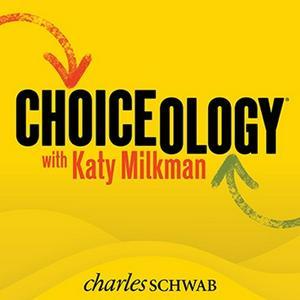
Get the free radio.net app
- Stations and podcasts to bookmark
- Stream via Wi-Fi or Bluetooth
- Supports Carplay & Android Auto
- Many other app features
Get the free radio.net app
- Stations and podcasts to bookmark
- Stream via Wi-Fi or Bluetooth
- Supports Carplay & Android Auto
- Many other app features


Choiceology with Katy Milkman
Scan code,
download the app,
start listening.
download the app,
start listening.



